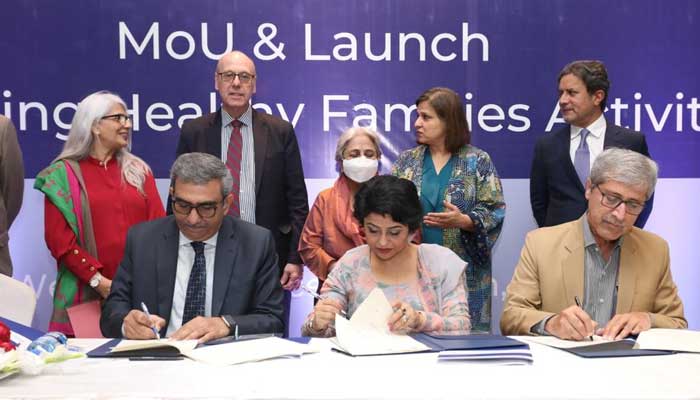US funds $40m for family health programme in Sindh, KP
USAID also aims to focus on making healthcare systems resilient to shocks from climate change
December 14, 2022

- It will support voluntary family planning.
- Project will enhance primary healthcare systems.
- "US has a long history of partnership with Sindh govt."
The United States Agency for International Development (USAID) Wednesday launched a $40 million health programme aimed at family planning, maternal, newborn and child health.
Sindh Minister for Health and Population Dr Azra Fazal Pechuho and USAID's Mission Director Reed Aeschliman were present at the 'Building Health Families Activity (BHFA)' programme's launch in Karachi, which will operate in Sindh and Khyber Pakhtunkhwa to enhance primary health care systems.
The programme, led by Pathfinder International — a US non-governmental organisation, will support voluntary family planning (FP) and improve maternal, newborn, and child health (MNCH) services in Pakistan.
“The United States has a long history of partnership with the government of Sindh,” Aeshliman said addressing the ceremony.
He added that USAID is committed to strengthening this relationship by building upon the foundation and legacy of its partnership and shared goal to save and improve lives.
Dr Pechuho lauded the continued support from the US government through USAID and emphasised the Sindh government’s commitment towards improving health care for the people.
"Focus on health care equity is fundamental to BHFA's approach, with assurance to the needs of women, girls, and youth as well as people traditionally marginalised from accessing quality health care," a statement by the USAID read.
It added that making health systems resilient to shocks from climate change is also a core focus.
"A gender-responsive approach will engage men and boys meaningfully, strengthen human resources for health, deploy new digital health solutions, and ensure commodity and supply chain security for FP/MNCH services, eventually contributing to more resilient health systems," the statement stated.











